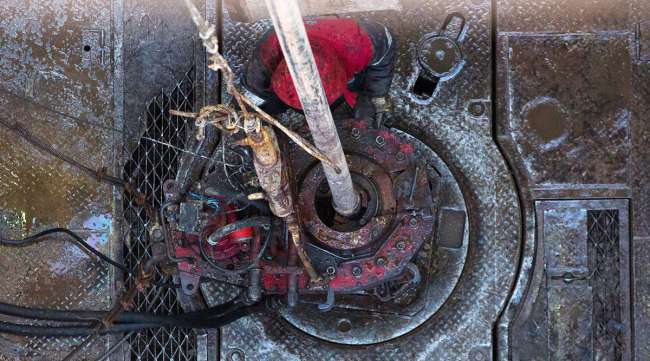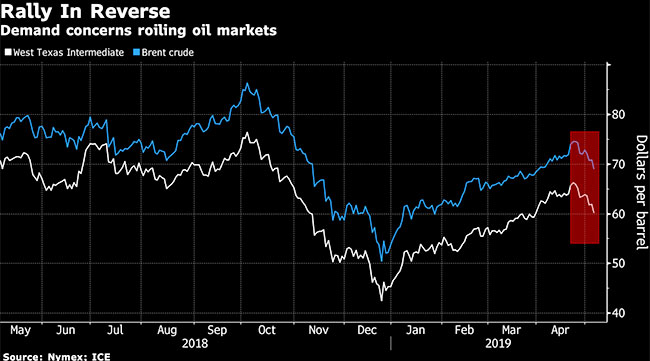Oil Rises as Middle East Tension Drowns Out Trump Trade Threats

Oil recovered from early declines after President Donald Trump threatened to escalate his trade war with China but also dispatched warships to the Middle East in a warning to Iran.
Futures in New York climbed 0.5% as Trump’s national security adviser announced an aircraft carrier strike group and bomber force were on their way to the Middle East. That erased a steep plunge earlier in the session after the president’s tweets suggested U.S.-China trade talks were in jeopardy, stoking fears about the global economy.
U.S. crude has retreated around 6% since hitting a six-month high in late April amid signs global markets may not be as tight as feared. While the possibility that the world’s two largest economies won’t reach a trade truce undermined prices, the decision to dispatch forces to the heart of global crude production posed a new risk to supplies, after Trump tightened sanctions on Iran last week.
“The drop was due to fears that a trade war with China could cause a recession that sends oil prices lower,” said Ellen Wald, president of Transversal Consulting, an energy and geopolitics consultancy in Jacksonville, Fla. “The recovery is basically saying, maybe we shouldn’t have pushed it so far.”
West Texas Intermediate crude for June delivery added 31 cents to $62.25 a barrel on the New York Mercantile Exchange as trading closed. Brent for July settlement climbed 39 cents to $71.24 a barrel on the London-based ICE Futures Europe exchange.

Trump threatened on Twitter May 5 to not only more than double existing tariffs on Chinese exports to the U.S. but also raised the possibility of penalties on an additional $325 billion of goods. Chinese Vice Premier Liu was set to arrive in Washington May 8 for what had been shaping up as a potential final round of talks. After Trump’s warning, Beijing was said to be considering a delay.
Hours later, National Security Advisor John Bolton announced the carrier deployment, calling it “a clear and unmistakable message” to Iran that any attack on U.S. interests or on those of its allies will be met with “unrelenting force.”
Iran has threatened to block the Strait of Hormuz, a chokepoint for crude shipments out of the Persian Gulf, after Trump tightened sanctions on Iranian barrels last week.
While the U.S. isn’t likely to allow any major disruptions to the Strait, “you’re sending more ships to a region that’s already really, really tight,” Wald said. “Even if there’s no actual closure, that kind of saber-rattling can get people on edge.”
Meanwhile, Saudi Arabia, the world’s biggest oil exporter, cut the cost of all crude grades to the U.S. for June, even as it raised prices for other regions.




